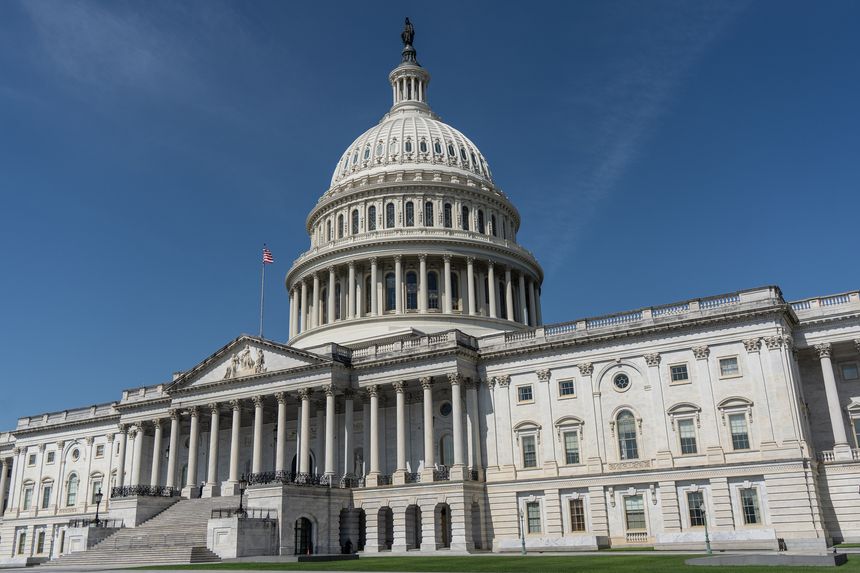The Government Shutdown’s Impact on Antitrust
November 10, 2025, 3:57 PM
By: Joshua J. Jowdy, Maryanne Magnier, Anna Judson
On October 1, 2025, the federal government shut down, causing non-essential government agencies to close temporarily due to a lapse in appropriations. The shutdown has now lasted more than 35 days, making it the longest in U.S. history, surpassing the 35-day shutdown that stretched from December 22, 2018, to January 25, 2019. Setting aside significant FAA disruptions and flight delays, and the attempt to suspend SNAP benefits, the shutdown has unfolded much like previous ones, but if it continues much longer, the strain on government systems is likely to intensify. This prolonged uncertainty may, in turn, cause companies contemplating mergers or other significant transactions to reconsider the timing of their deals and wait for greater predictability.
Despite the shutdown, antitrust enforcement has kept moving. The DOJ Antitrust Division and the FTC's Bureau of Competition are continuing to operate: the DOJ has designated about 60% of its staff as “excepted,” and the FTC is operating with roughly 50% of its team. Federal courts remained open and funded through October 17 using fee balances and other non-appropriated funds. After those funds were exhausted, the judiciary shifted into a second phase of operations under the Antideficiency Act, continuing only constitutionally required and “excepted” functions.
How are the antitrust agencies and courts impacted?
-
Both antitrust enforcement agencies are operating under their contingency plans, which designate only “excepted” personnel to continue working. Under the Antideficiency Act, those employees may carry out activities necessary to protect life or property or to support litigation that cannot be postponed. At the DOJ, excepted staff are focused on ongoing criminal trials, court proceedings that cannot be continued, and civil enforcement actions facing immovable statutory or procedural deadlines. They also prepare merger challenges where allowing a transaction to close would pose a reasonable likelihood of harm to property in which the United States has an immediate interest.
-
Courts remain operational, under constrained conditions, while many administrative employees have been furloughed or are working without pay. Courts are addressing shutdown-related motions on a case-by-case basis. In D.D.C., Judge Amit Mehta denied the DOJ's request to delay a remedies hearing in the Google Search case, citing D.C. Circuit precedent from the 2019 shutdown. Similarly, in the EDVA, Judge Leonie Brinkema declined to postpone proceedings in the Google Ad Tech remedies phase, rejecting the government’s request for a continuance. By contrast, other high-profile matters (including cases against Amazon and Apple) have been stayed at the government’s request.
- The FTC's Premerger Notification Office (PNO) is open on a reduced schedule to accept filings (online 9 a.m. – 1 p.m. ET). The PNO will not provide informal guidance on HSR questions, and will not grant early termination of the HSR waiting period. Importantly, however, HSR waiting periods run as usual, which means the 30-day statutory clock keeps ticking even though fewer staff are available to review filings. The DOJ's plan likewise continues merger review work where needed to protect the government's interests.
-
Substantive merger scrutiny continues. Investigative teams have generally been exempt from furlough during the statutory 30-day HSR waiting period (and, as applicable, in 60-day reviews for HSR submissions that have been pulled and refiled). Because waiting periods aren't paused, the agencies have limited tools to preserve review when staffing is reduced. Practically, that increases the possibility of pull and refile requests, and the increased likelihood of Second Requests where issues can't be resolved in the initial 30 days. In addition, those parties receiving Second Requests should expect less engagement from agency staff than under ordinary circumstances. As the antitrust agencies conserve limited resources, staff have prioritized matters with statutory deadlines (i.e., deals before issuance of a Second Request or after certification of substantial compliance) over matters in the throes of a Second Request. Less staff engagement can mean more limited opportunity to negotiate the parameters of a Second Request and fewer opportunities for substantive advocacy.
What dealmakers and litigants should do now:
- Build more time into deal timetables. With reduced agency staffing, schedules may be delayed.
- Be prepared to pull and re-file HSR more frequently. For transactions facing statutory deadlines under the HSR Act, refiling may be necessary to reset waiting periods if staff raise questions, but have limited availability to engage in discussions or market inquiries. Borderline deals or deals in complex markets may even be more likely to receive Second Requests than under ordinary circumstances as a device to preserve agency opportunity to review. In at least some matters, agency staffing has been further reduced after the issuance of a Second Request, with staff indicating they are unable to engage in modification negotiations while the shutdown remains in effect.
- Monitor case schedules and court orders closely. Under their contingency plans, the DOJ and FTC must move for a stay in active civil litigation. Judges are ruling on these motions individually, and parties should track their assigned judges and district-wide orders closely. Parties should also weigh whether to oppose a stay based on case posture and strategic advantage. If the case is trial-ready and momentum favors proceeding, postponing may be disadvantageous. However, if a delay will have a positive or neutral impact on your client’s position, a stay may be beneficial. The pause could also open a window for settlement before litigation resumes.
Prior shutdowns typically slowed antitrust work and some civil litigation, and today's mix is not unusual. Courts are open, the largest antitrust cases are at remedy or trial preparation stages, merger review clocks are still running, and the agencies are half-staffed and triaging resources to keep urgent matters moving. While day-to-day operations are constrained, overall activity levels and case management look much like prior government shutdowns, at least so far.

To subscribe to our publications, click here.
Tags
News & Insights
News & Insights
ABA White Collar Crime Institute 2026
Speaking Engagement
GCR Live Cartels: 2026
Speaking Engagement
Antitrust
Noerr Competition Day 2026
Speaking Engagement
Antitrust
Consumer Brands CPG Legal Forum 2026
Speaking Engagement
NBA CLS 39th Annual Corporate Counsel Conference
Sponsorship
Antitrust
University of Pennsylvania Journal of Business Law Annual Symposium 2026
Speaking Engagement
Antitrust
2025 Healthcare Antitrust Enforcement Wrap Up
Axinn Viewpoints
Antitrust
Here We Go Again: Third Round of Inflation Reduction Act Drugs Listed
Axinn Viewpoints
Intellectual Property
CLA Antitrust and Consumer Protection Section In-House Counsel Summit
Speaking Engagement
Antitrust
New Frontiers of Antitrust – 16th Annual International Conference of Concurrences Review
Speaking Engagement
Antitrust


